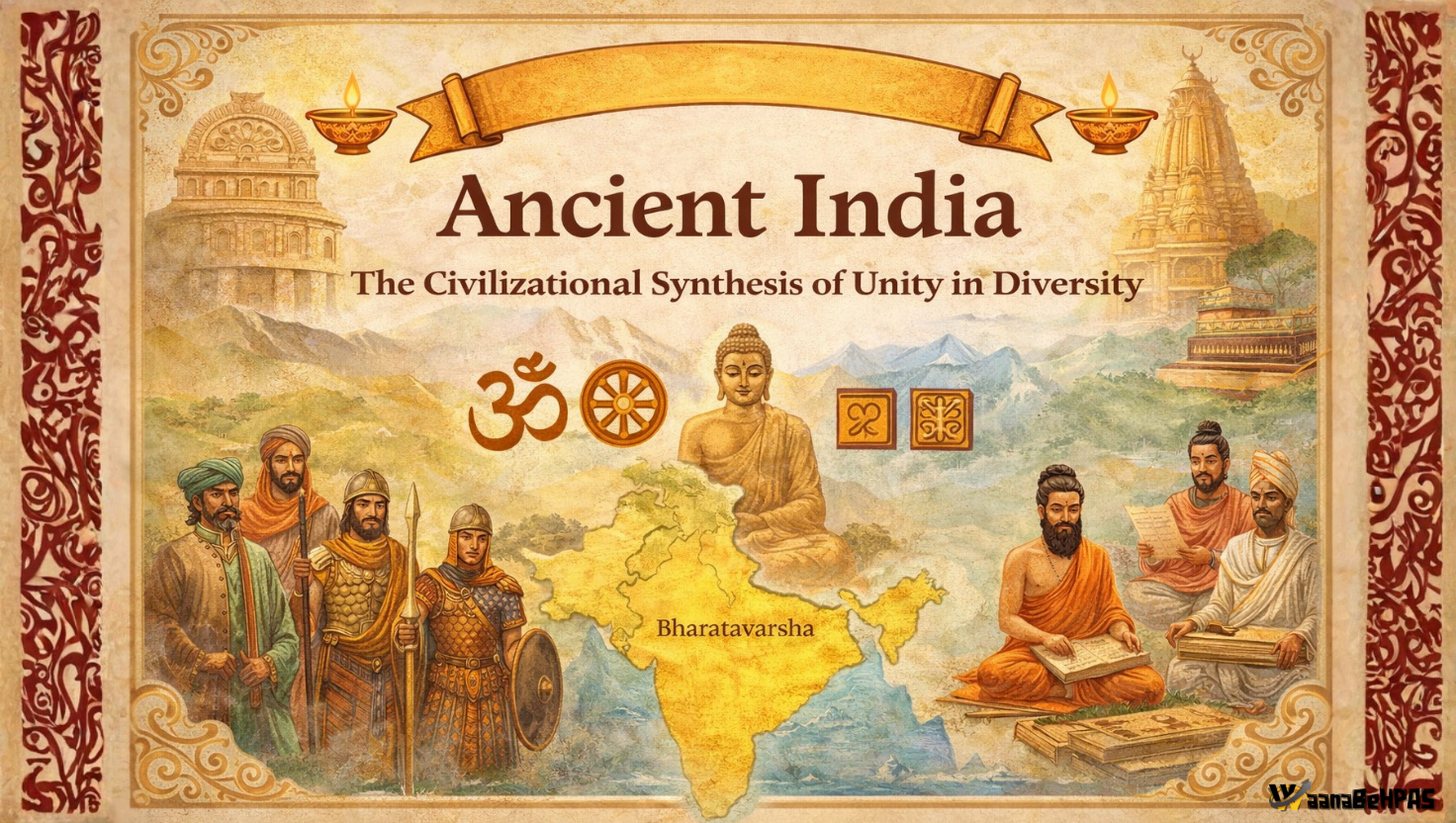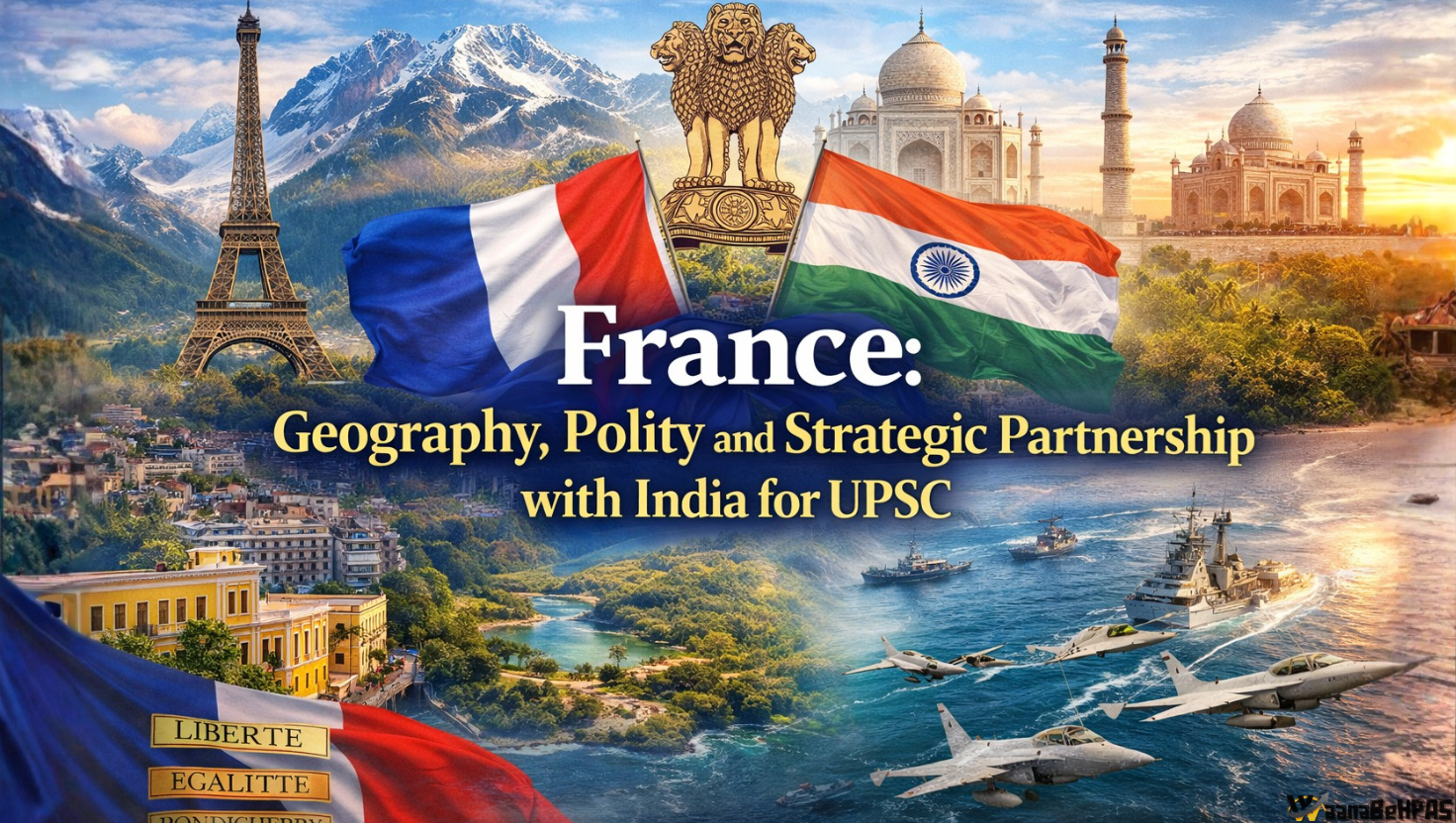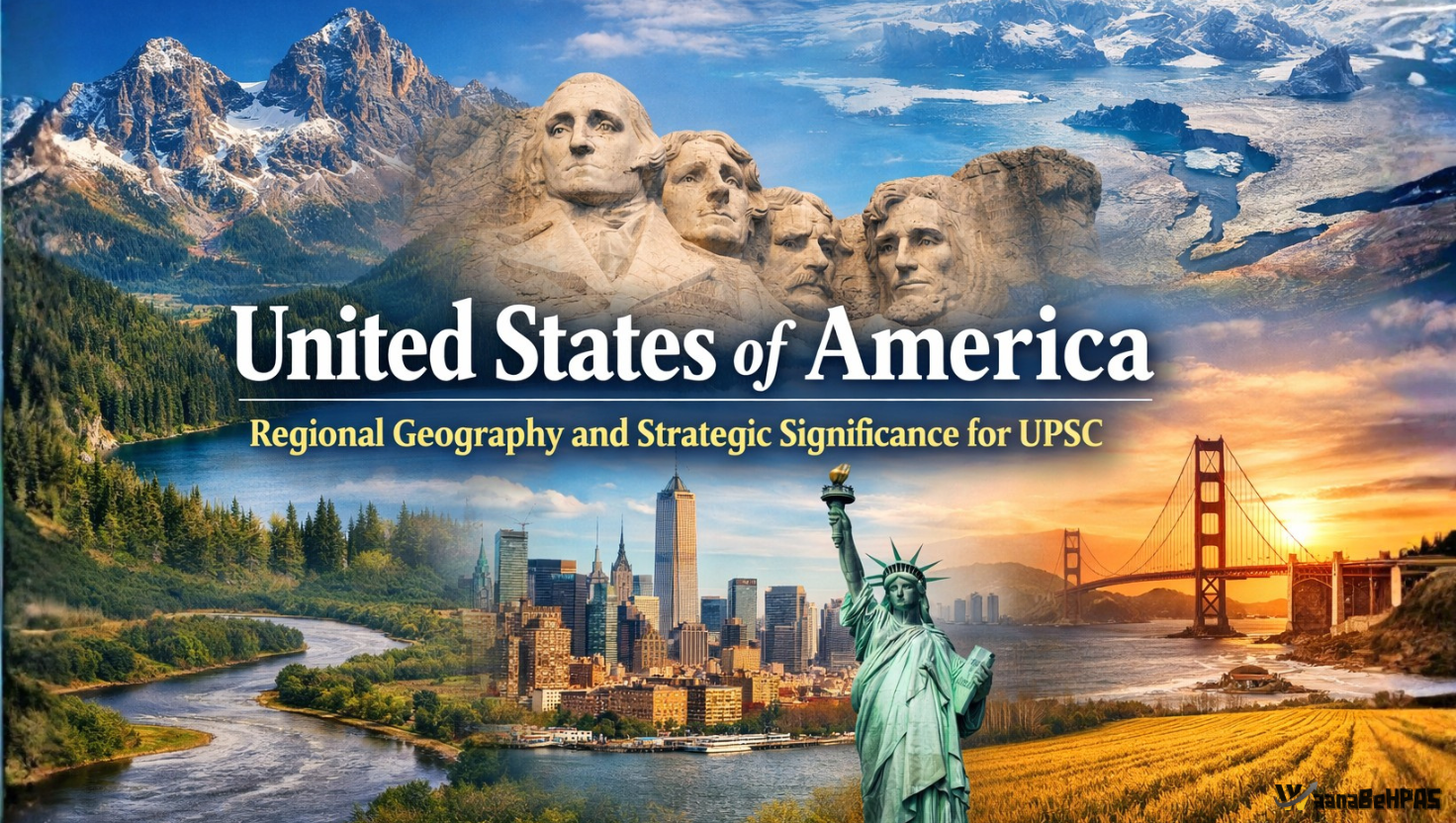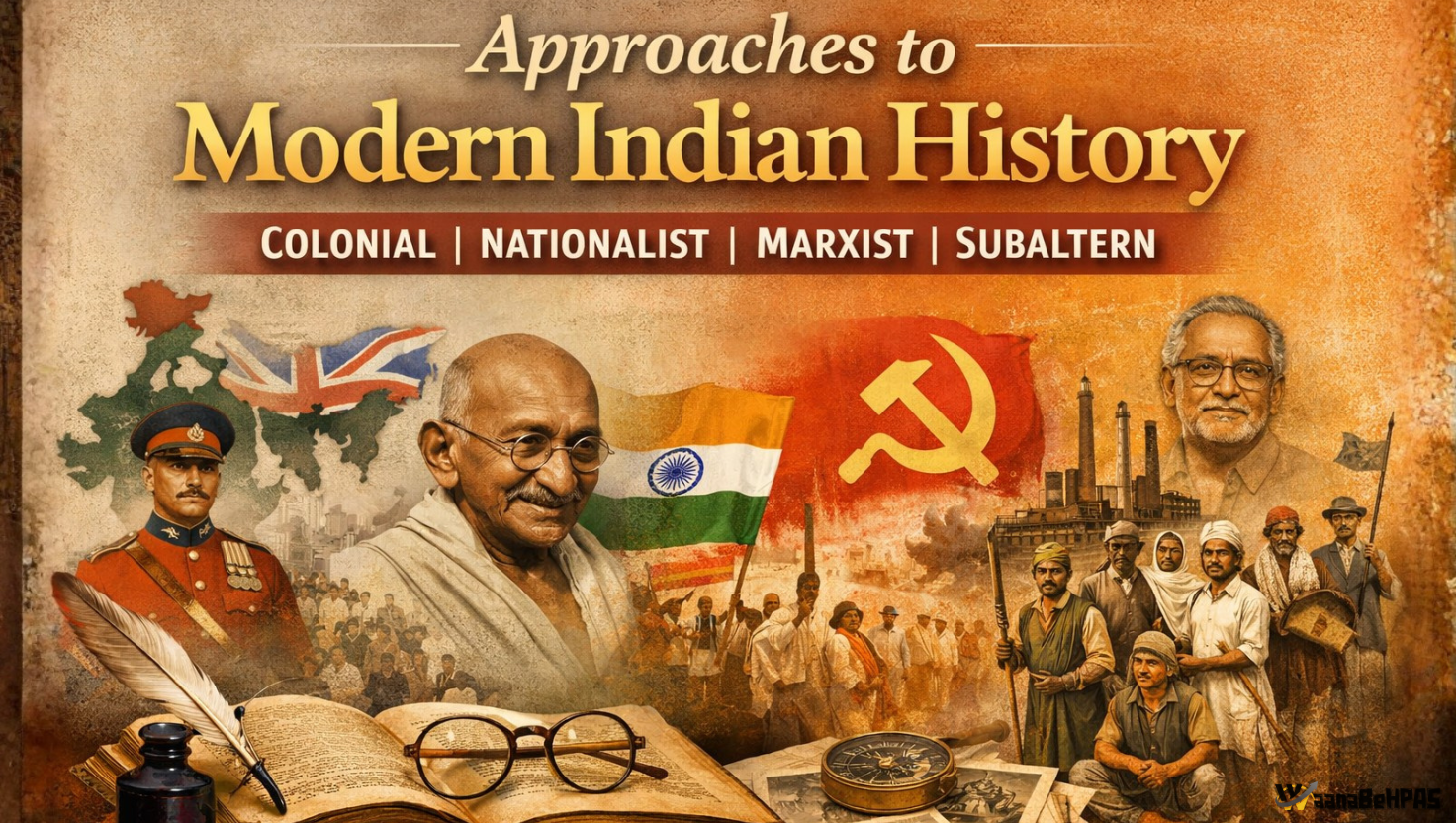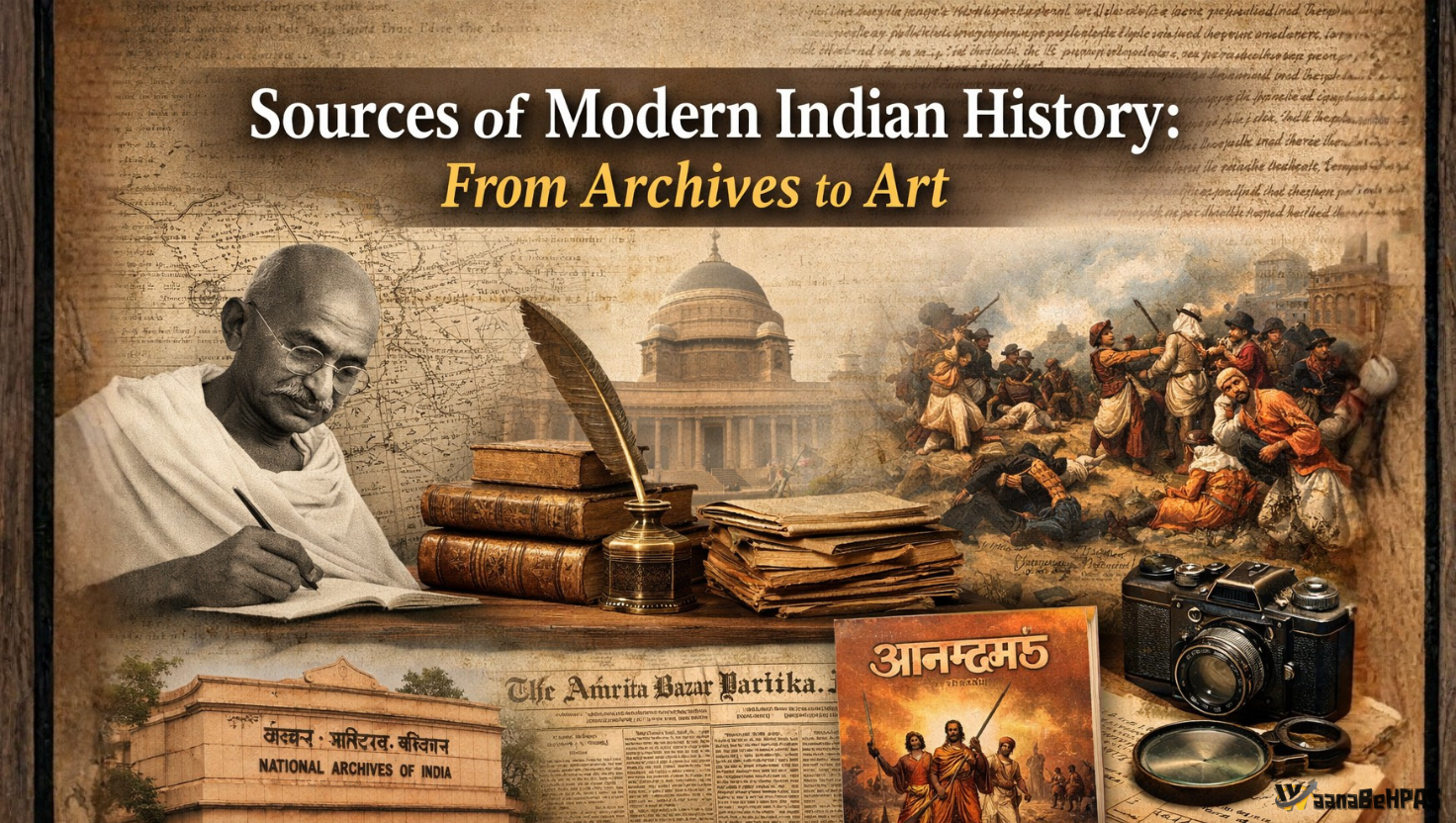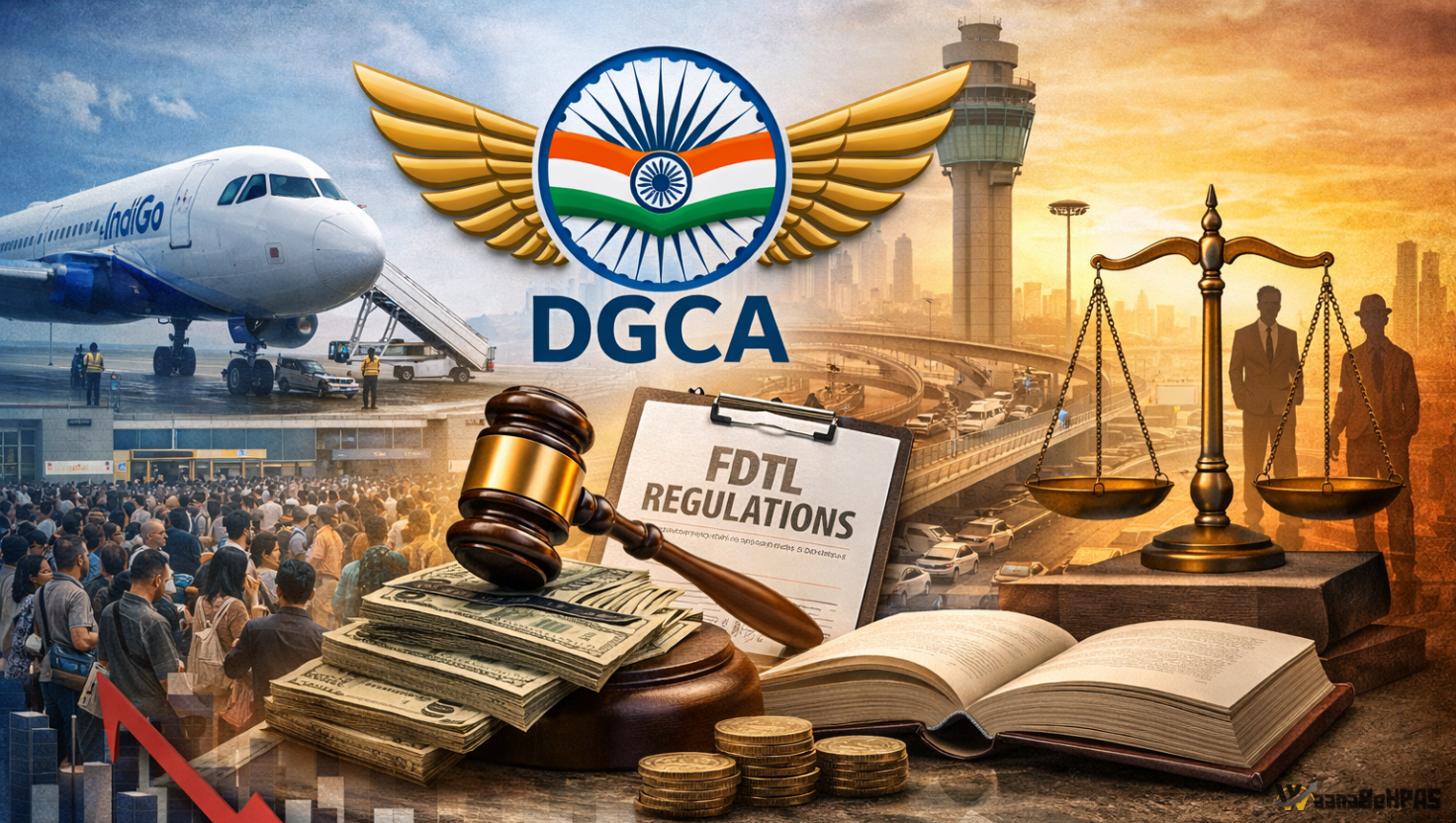Political Interference in Administration: A Challenge to Good Governance
Syllabus: Ethics, Integrity, and Probity in Governance (UPSC GS III)
Source: Daily Herald
Context:
A recent case in Solapur involved an NCP leader and others obstructing government officials during a drive against illegal mining. The issue drew attention when a video showed the Deputy Chief Minister of Maharashtra scolding IPS officer Anjana Krishna on the phone. This raised serious concerns about political interference in governance.
What is Political Interference?
Political interference happens when elected leaders or party workers try to influence or control government officials in ways that go against rules, fairness, or merit-based decisions. This often undermines good governance.
Common Features of Political Interference
- Unnecessary Pressure on Officials
Leaders may try to stop raids or delay actions to favour certain people or groups. - Favouritism and Nepotism
Jobs, contracts, and welfare schemes are sometimes given based on loyalty instead of qualifications or need. - Loss of Neutrality
Officials are pushed to act in the interest of ruling parties, rather than serving all citizens equally. - Focus on Short-Term Gains
Politicians often prioritise schemes that win votes instead of policies that benefit the country in the long run. - Blame Game and Weak Accountability
When things go wrong, responsibility is avoided, making it hard to fix problems.
Why Political Interference is a Problem
- Against Constitutional Values
It violates the rule that everyone is equal before the law (Article 14) and weakens rule-based governance. - Conflict of Interest
Leaders may protect party workers or personal interests instead of focusing on public service. - Loss of Trust
Citizens start believing that the system is biased and unfair. - Demoralising Honest Officials
Officers who follow rules may be threatened, transferred, or humiliated, which discourages integrity. - Gender and Respect Issues
Disrespect, especially toward women officers, harms dignity and workplace ethics.
Important Observation:
The Second Administrative Reforms Commission (2nd ARC) noted, “The greatest threat to probity comes from politicising the civil service and eroding neutrality.”
What Thinkers Say About Good Governance
- Plato (Philosopher King)
Plato believed rulers should be wise and just, not driven by personal interests. - Aristotle (Rule of Law)
Laws, not individuals, should guide governance. Political interference replaces rules with personal decisions. - Immanuel Kant (Duty and Ethics)
Leaders have a duty to act morally. Pressuring officials for personal gains violates this duty. - Max Weber (Bureaucratic Neutrality)
A professional bureaucracy must be neutral and rule-based. Political pressure turns it into a tool for parties.
Challenges in Stopping Political Interference
- No Strong Legal Protection
Civil servants are vulnerable because many orders are verbal and hard to challenge. - Frequent Transfers
Officers are moved often, reducing continuity and rewarding pliable rather than honest officers. - Weak Institutions
Bodies meant to protect civil servants lack independence and authority. - Low Political Accountability
Without rules for ethical behaviour, politicians misuse their power without consequences. - Fear of Reporting
Officers avoid reporting interference due to threats or retaliation.
What Can Be Done
- Fixed Tenure and Transparent Postings
Ensure officers serve for a set period and are not transferred arbitrarily. - Stronger Laws
Provide legal protection to officers against illegal or unethical orders. - Ethical Code for Politicians
Introduce binding rules that promote respect for constitutional values. - Independent Grievance System
Create bodies where officers can safely report interference. - Training and Leadership Development
Help officers develop skills to handle pressure and make ethical decisions. - Public Awareness
Media and citizens should watch governance closely and hold leaders accountable.
Conclusion
Political interference weakens good governance by harming neutrality, fairness, and public trust. Implementing reforms like fixed tenure, legal safeguards, ethical training, and public participation is essential to protect honest officials and ensure that governance remains fair and rule-based. Only when politics respects administration can democracy function properly and deliver justice to all.



